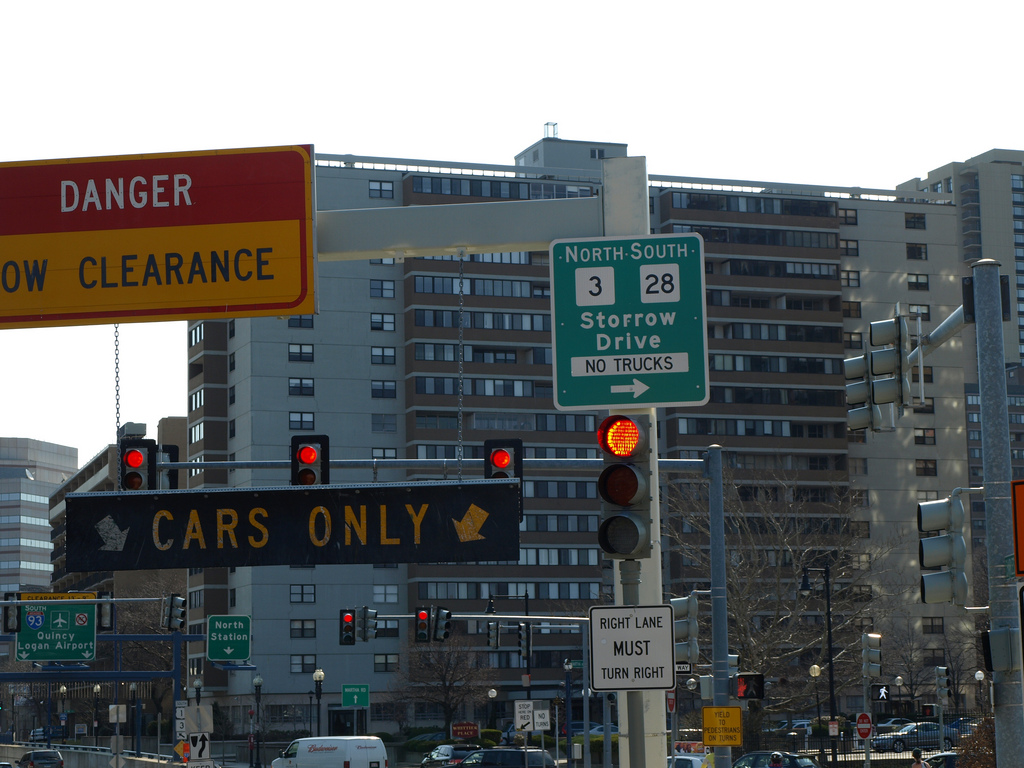
Transportation is one of the most significant pain-points for Bostonians to endure. Everyone travels and commutes in some form or another and as we all know, public transportation can often times be unreliable. It’s no wonder, then, that over the past year alone there have been a slew of new startups cropping up that change how people catch a ride, pay their tickets and feed their meters.
Various developments are occurring in nearly all facets of transportation. We played witness to a growth in parking apps. Uber butted heads with the local taxi industry. And a freshly funded company called Flywheel is eyeing Boston as its next potential marketplace. To get a better look at what’s more to come, let’s take a quick look at the past.
Rideshares
Uber could easily take the title of most contentious company not just in Boston, but across the world. The on-demand transportation network riled the taxi industry, tipped a toe in the water taxi pool, and brought us ice cream back in the summer.
Most recently, though, Uber has come under fire for an executive saying that they should dig up dirt on journalists and for its drivers allegedly kidnapping and raping young women. All the while, the Boston City Council is still looking for the best way to regulate Uber properly and safely.
Uber’s chief competitor in Boston is Lyft. The two companies engaged in a bitter mud slinging contest with accusations of sabotage from both sides. The dust has since settled and Lyft has been quietly picking up and dropping off riders as Uber experienced some negative PR.
Hailo, yet another car-share service, tried to compete with the aforementioned two but ceased its Boston operations in October.
Looking to take on each of them in the future could be Flywheel, a carshare-taxi hybrid which allows users to summon a car that’s driven exclusively by licensed taxi drivers. They pulled down $12 million in funding and want to expand, possibly to Boston.
Bridj, however, took a different approach to rides. They’re offering up a smart bus that’s not dictated by set routes. Rather, it’s based on big data – approximate locations of where people travel from and to en masse. Cambridge approved a 6-month pilot program for Bridj while Boston threw its full support behind it. They’ve already carved out several upcoming bus routes, raised $1 million for good measure and have a fleet of fancy new buses.
Parking Apps
We’ve all tried, and surely failed miserably at times, to find street parking in Boston. Sometimes we’re lucky enough to find an open metered space. Other times, we think ourselves victorious only to notice four or five variations of signs that state there’s no parking for whatever reason.
Baltimore-based Haystack was the first to try and capitalize in this space. They hosted an official launch party despite Mayor Walsh’s abundant discontent with it. They even gave away a $5,000 promotional prize. The Boston City Council, however, eventually put a stop to Haystack alleging they were profiteering off public property, not facilitating a transaction of information.
Haystack opened the floodgates for the likes of SPOT, an Airbnb-like service for parking spaces which launched after securing almost $1 million in funding. Veer also launched but unlike SPOT, it connects drivers with nearby parking garages based on the best price.
SpotHero actually reserves a parking spot in a garage through a contracted deal with the garage operator. It recently pulled down a $4.5 million series A. SpotLight is a summoning service like Uber and Lyft, but rather than call a car in real-time it calls a valet service.
Payment Platforms
Two distinct payment solutions are being offered in the Greater Boston Area, one for easily paying off parking tickets and the other for feeding meters.
Boston recently partnered up with TicketZen for a pilot program which will allow users to simply scan a parking ticket barcode and pay the ticket. They’re expected to release news and data about the pilot, which lasted for three months, in the near future.
In Somerville, where TicketZen also is setting its sights, mobile parking meter payment systems are on the rise. It’s the first city in the Metro Area to offer such a solution, thanks to Parkmobile. Gone are the days of rushing back to one’s meter periodically. A person needs only to tap their mobile devices to renew the time remotely.
Boston is also tinkering with money-less meter payments, but nothing has yet been decided on. The City has hinted at a pay-by-voice platform, evaluating the viability of such. So 2015 could very well be the year of payment solutions — much like 2014 was for parking apps and rideshares.

